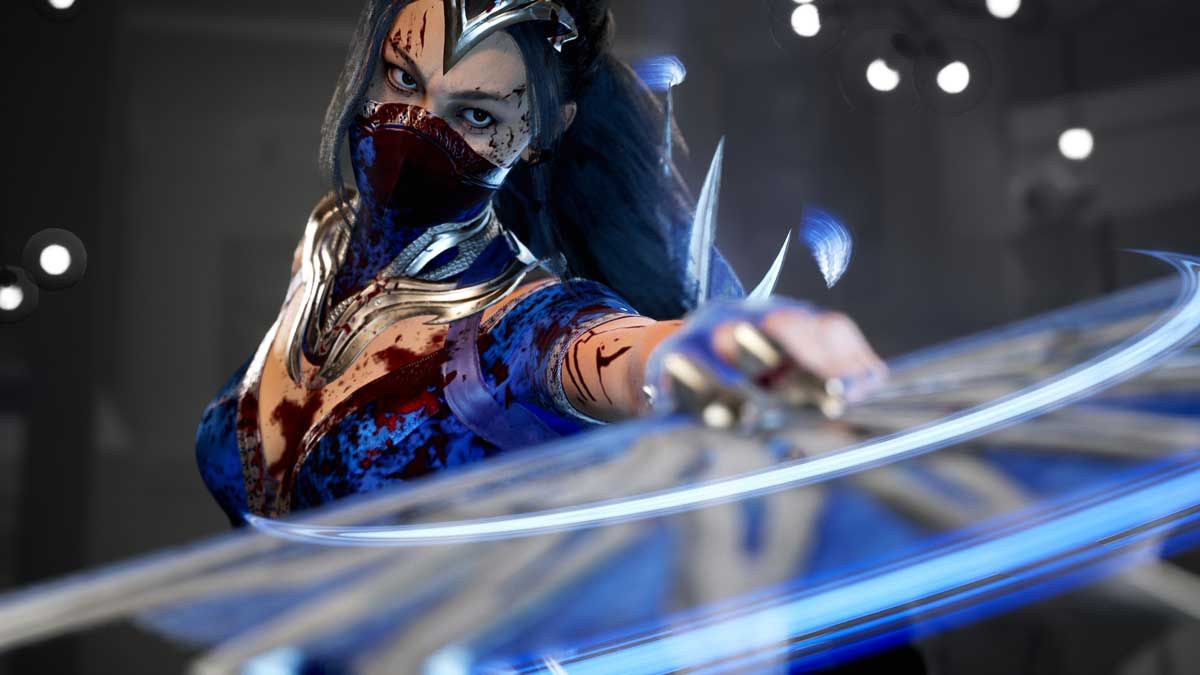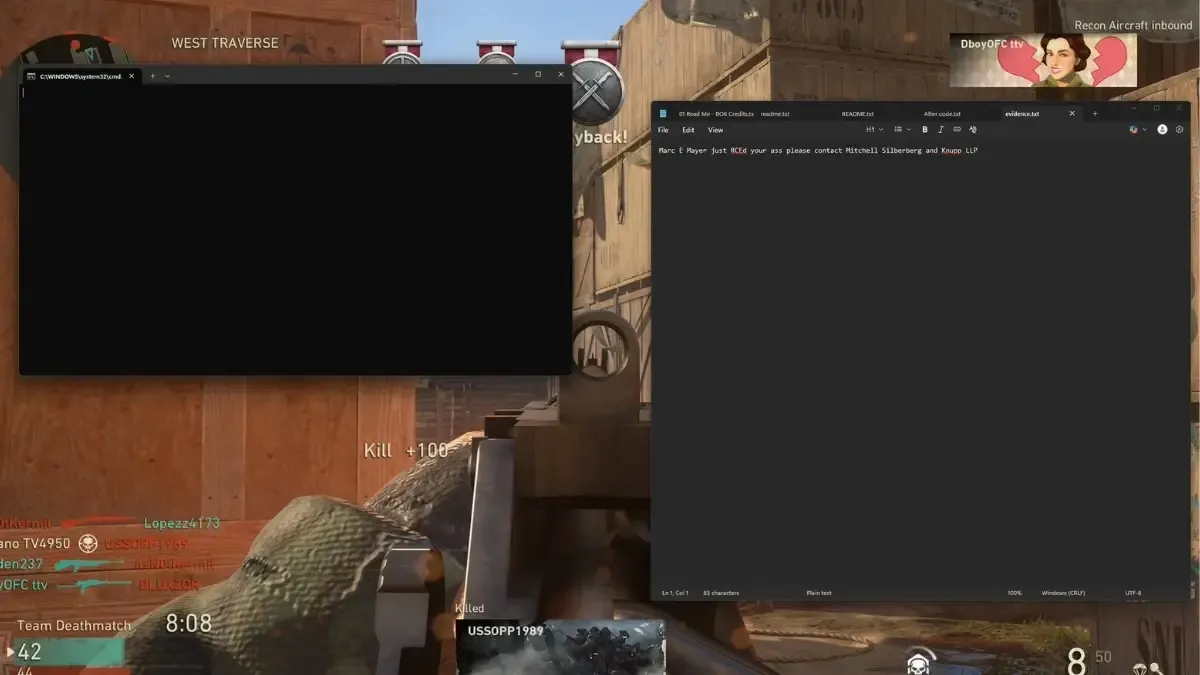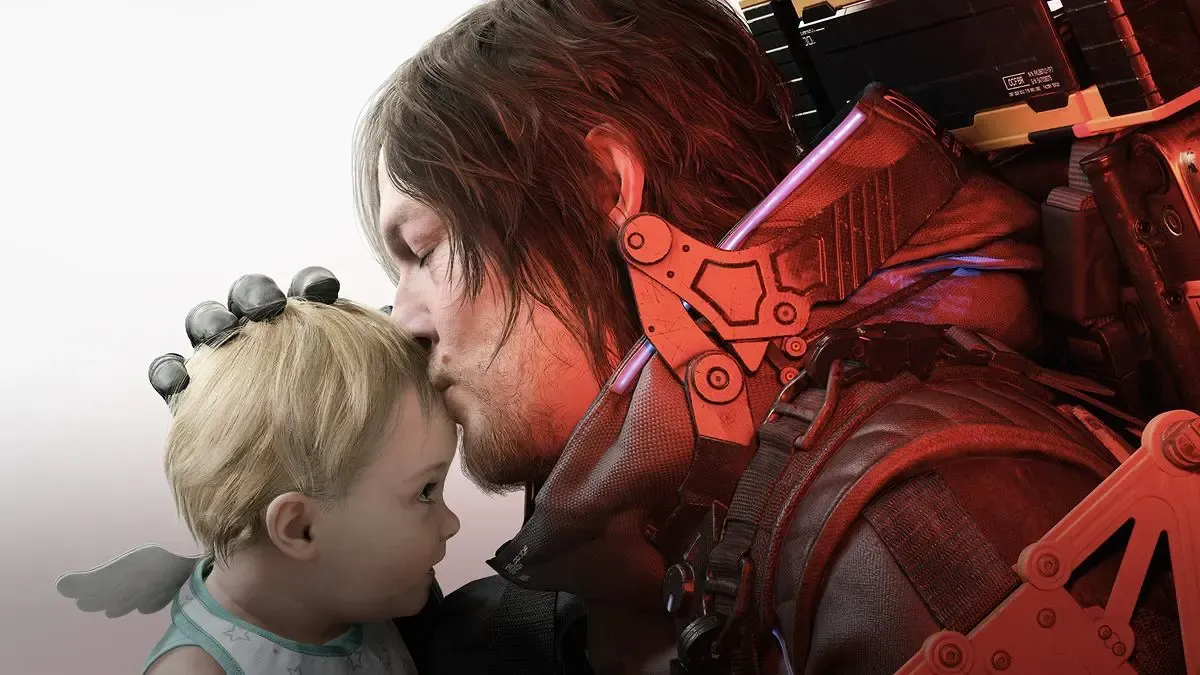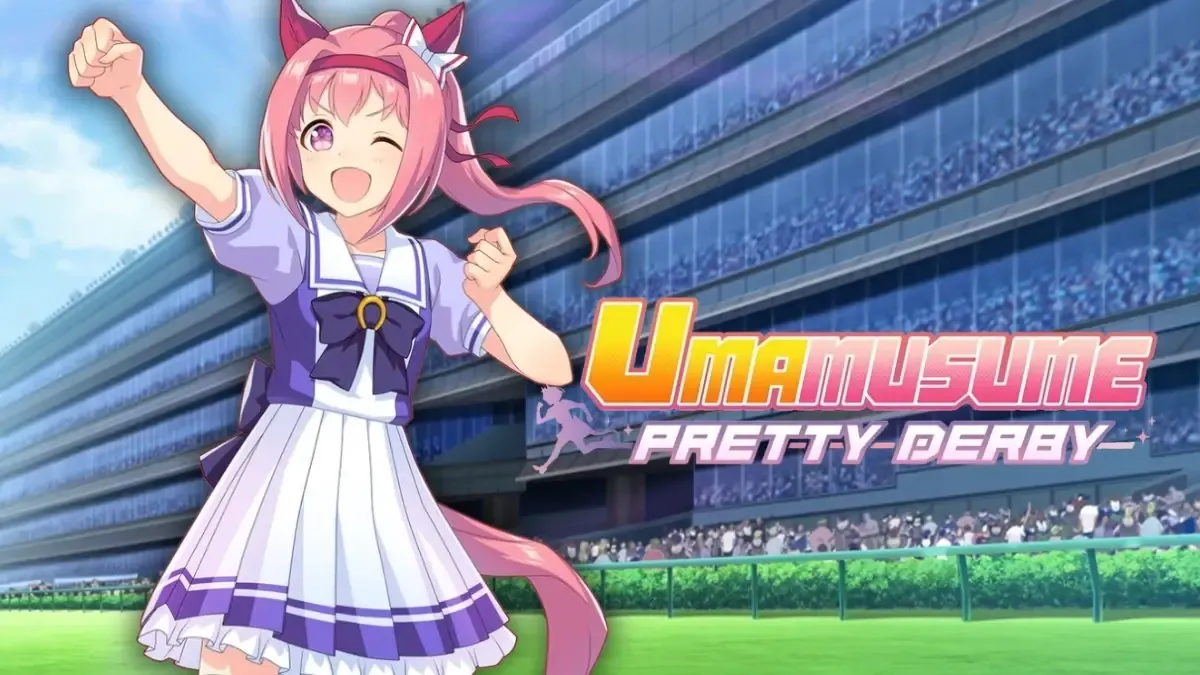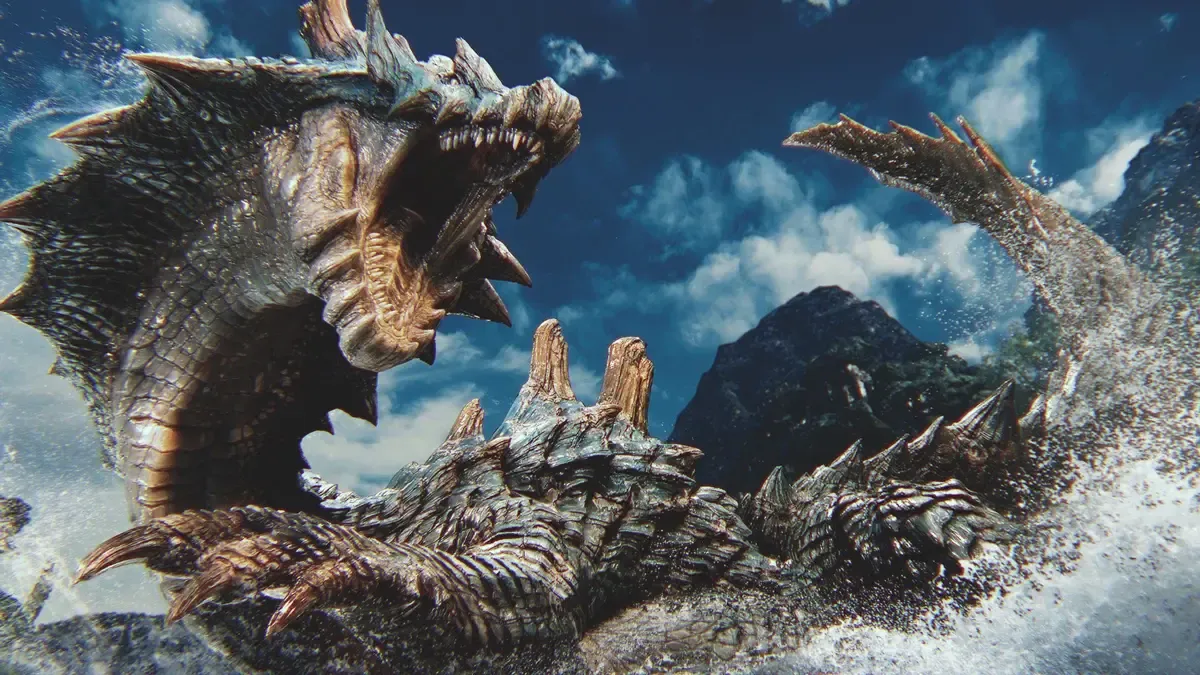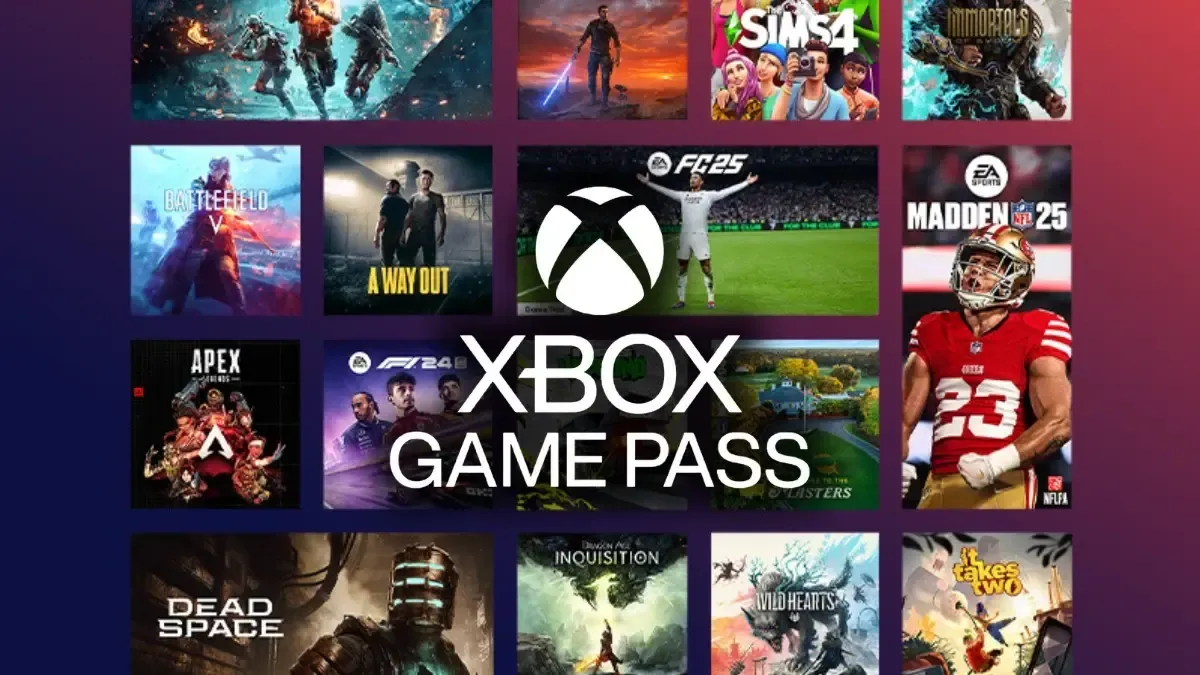Image: NetherRealm Studios
Mortal Kombat 1’s tweaked gameplay and new modes will satisfy long standing fans, but its campaign is bound for controversy.
NetherRealm Studios tests the might of its storytelling capabilities with Mortal Kombat 1, a franchise reboot that hits the reset button on a decade's worth of convoluted plots and character deaths to start anew. There’s a lot riding on this reboot, especially considering that the last game - Mortal Kombat 11 - was so beloved by fans that breaking continuity now might have spelled disaster for the studio.
Fortunately, Mortal Kombat 1 is easy to fall in love with. Almost everything you like about fan favourite characters like Johnny Cage and Mileena are retained, and even expanded upon to fleshen out their lore and make this iteration of the roster feel unique. The campaign is an epic blockbuster with apocalyptic stakes typical of recent NetherRealm fare, only dropping the ball when the story takes a jarring heel turn in its third act. The new singleplayer mode Invasion is a lot of fun as a fill-in for the noticeably absent Krypt, and online play feels fresh thanks to a number of small but substantial changes to combat.
Our feelings on Mortal Kombat 1’s campaign remain mixed, however.
The new timeline, according to Liu Kang
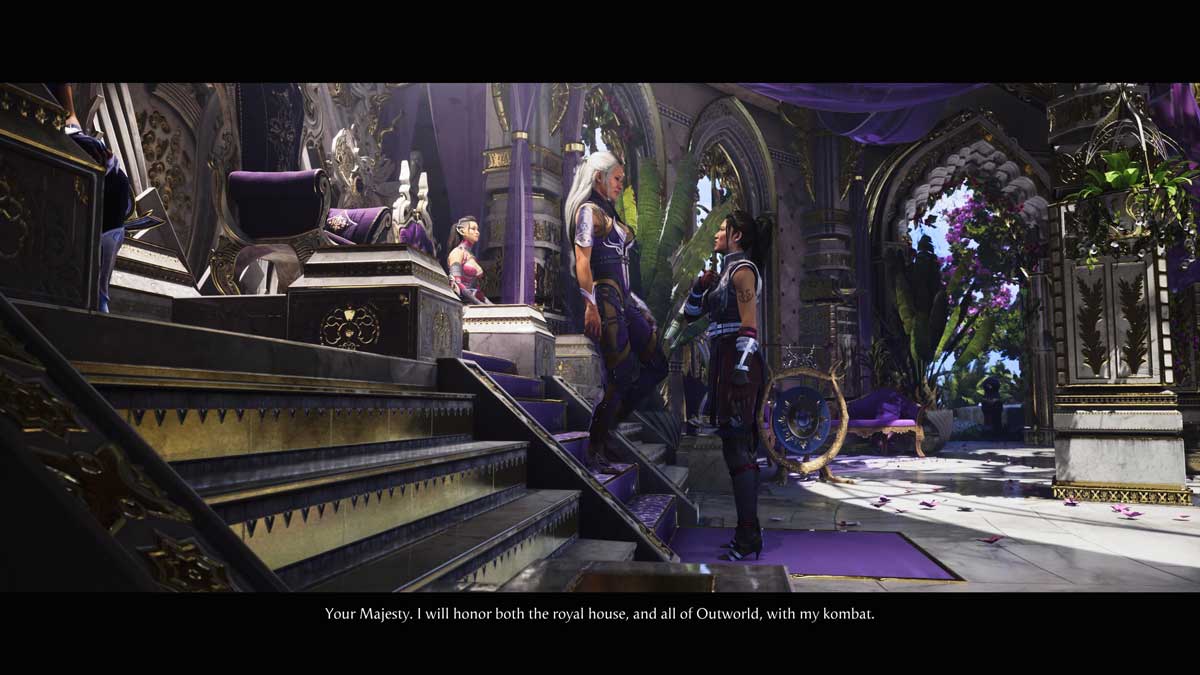
While Mortal Kombat 1 serves as a soft reboot for the franchise’s characters and events, you’d be remiss to skip out on its prequel Mortal Kombat 11 entirely. Only the basics are outlined in this campaign: Liu Kang has used Kronika’s Hourglass to fashion an entirely new timeline to revive his long-dead friends and undo apocalyptic events tied to old villains. The realms are in unfamiliar territory now, as the fire god has decided to rejigger the lives of allies and enemies alike to ensure that things don’t end in bloodletting and violence anymore. For example, Shang Tsung still exists - but only as a failed huckster with no real magic to speak of. Sub-Zero and Scorpion typically play the role of enemies or uneasy friends, but this time they’re brothers leading a clan of ninjas.
While Liu Kang once held the power to manipulate reality itself, he has since forfeited that power to the keeper of time Geras. Now playing the role of his former mentor Raiden, he’s a powerful elder god collecting champions of Earthrealm to fight in a multi-realm tournament to stave off war. Many Mortal Kombat games start with this simple premise before their stories jump into full-fledged magical chaos, and this game is no exception.
What I’ve described makes up for roughly the first two hours of the campaign, but it’s safe to say that Mortal Kombat 1 doesn’t settle for being yet another generic franchise reboot. While these characters are decidedly different from those who came before, their altered existence is not the result of a total reset. Players will be buried in endless exposition if they haven’t played Mortal Kombat 11, as the campaign carries out an elaborate fake-out to explore a new genre of storytelling for the franchise - but a very tired one in pop culture as a whole right now.
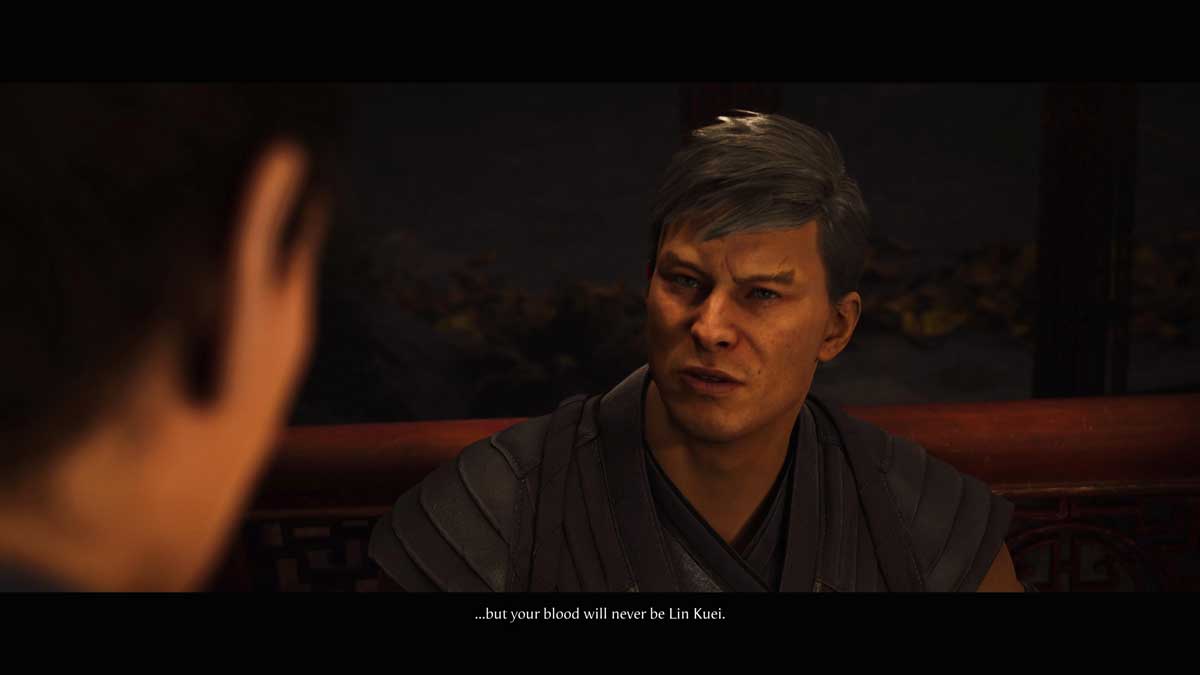
That’s not to say that the campaign isn’t fun to play through. These characters are hammy and cheesy, but they can also be compelling and loveable - Li Mei and Ashrah being the standouts as two underdogs fighting for what’s right despite the odds. Johnny Cage was my favourite fighter in Mortal Kombat 11 and while this back-to-basics version of him took some getting used to, he's a lot more immediately likeable than before while maintaining that signature cocky-but-dorky exterior. His rivalry with Kenshi ends up being one of the biggest highlights of the story, and serves as proof that NetherRealm really can bring new ideas to a very old table.
Unfortunately, for every blockbuster cutscene and gorgeous environment players fly through in the roughly six-hour campaign, there are huge blocks of dull exposition and characters who flit in and out of the story so often that their inclusion seems unnecessary. The second act of the story drags on as the cast delivers bloated monologues about their lives like they're reading from their own wiki pages, and characters like Smoke, Nitara and Reiko practically have no presence at all in the campaign besides a few quips and subsequent beatdowns.
The game’s voice acting can also be very hit and miss - Raiden and Kung Lao sound wooden and unconvincing while Megan Fox delivers a resoundingly bored performance as the vampire Nitara. Kenshi, Mileena and Johnny Cage on the other hand, are deeply human and fortunately given the story’s few emotional beats to hammer home. Alan Lee is particularly effective in replicating Cary-Hiroyuki Tagawa's smarmy performance as Shang Tsung from the Mortal Kombat movie. The game’s music is fantastic as well, with composer Wilbert Roget II returning from Mortal Kombat 11 to deliver sweeping lush music and menacing overtures to accompany the game’s sometimes-booming, sometimes-idyllic sequences.
Invasion!
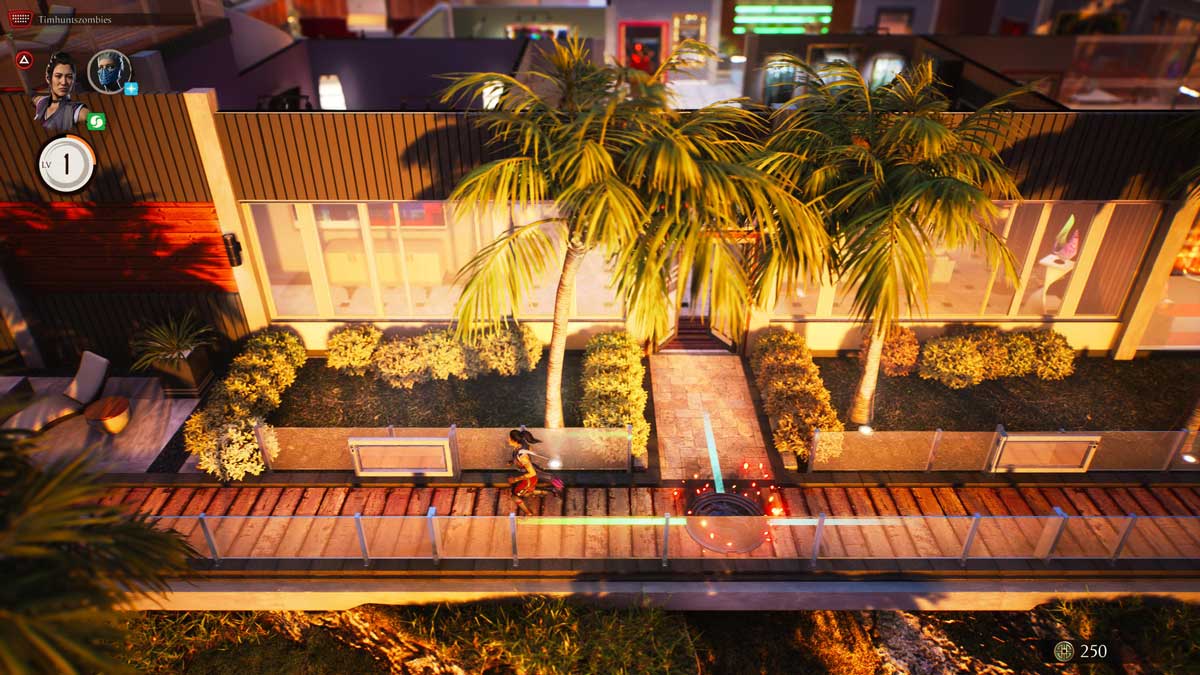
Mortal Kombat 1 has two additional singleplayer modes: the Towers containing extra character endings (which are sorely needed as the campaign offers zero closure) and an all-new mode called Invasion. There isn’t a whole lot to say about the Towers because they really haven’t changed. All you do is ascend through a series of fights before conquering a final boss to unlock a character ending, which plays out through a short cutscene that fleshes out the game’s lore. It’s worth playing through if you want to find out what happens to specific characters in the aftermath of the campaign, or if you just want to get through a few structured battles against AI enemies. The XP offered in the Towers is criminally low however, which is a bummer for anyone trying to level their characters.
Invasion is clearly the shining star of these two modes. Invasion replaces the Krypt as a way for players to get additional cosmetics and XP in this game, taking the form of a boardgame-like series of overworld maps littered with easter eggs and progression items. Invasion takes you from environments like Johnny Cage’s mansion to the Living Forest, and you’ll progress by hopping from one node of the map to the next. Each node consists of a fight with a few modifiers to make things interesting. For example, sometimes a fight isn’t a fight - but a series of lightning bolts that you have to dodge without dying.
Some of these ‘fights’ can get really annoying if you don’t build out your characters a certain way using collectible Talismans and Relics, mostly due to how repetitive their modifiers can be. The rewards - mostly character skin recolours - were mostly unsatisfying, too. I love a good boardgame, but the novelty of this mode lies squarely in its visuals and not its gameplay. Not everyone loved the Krypt - being a dungeon-like mode filled with puzzles and spiders - but it offered a refreshing change from the usual 2D fights to 3D exploration. Invasion feels arcade-y to a fault by comparison, but at least NetherRealm plans to update this mode more frequently with new content over the next few months, and possibly years.
But… what about the Kombat?
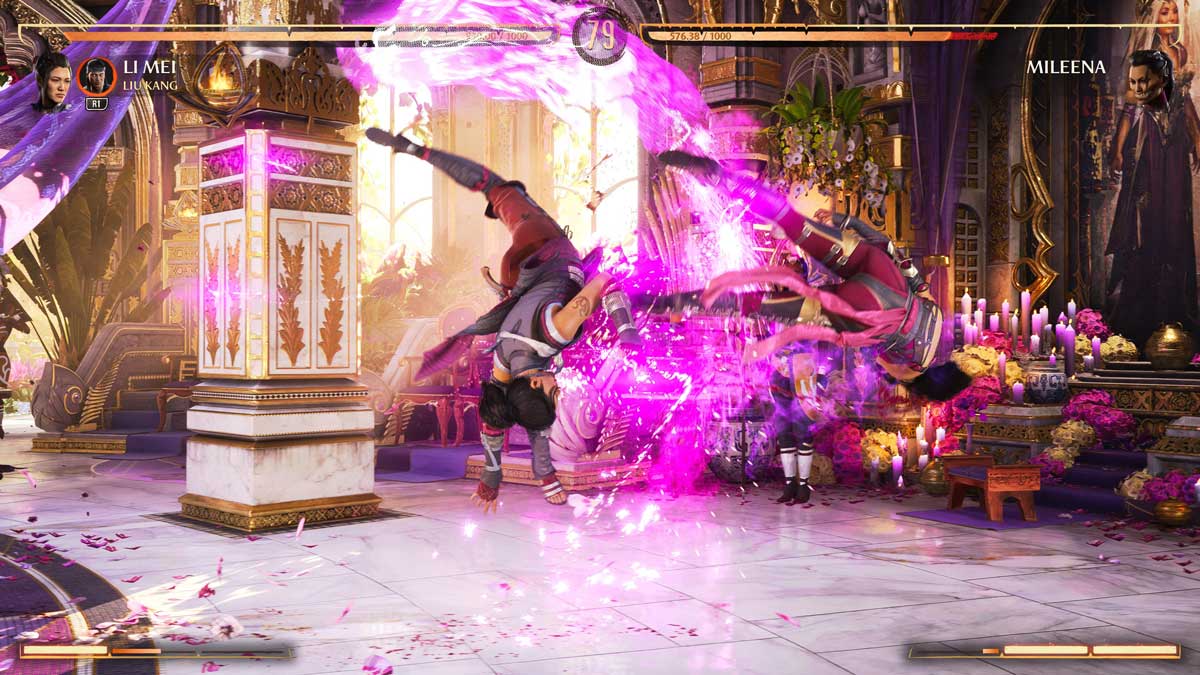
Mortal Kombat is one of my favourite fighting game franchises in existence, but this year’s roster feels a lot less exciting to play with than usual. While the game sells itself as a soft reboot of the franchise, the ridiculous scale of its campaign quickly makes the roster feel disappointingly limited. Characters like Quan Chi, Shang Tsung and Ermac have a huge presence in the campaign, but players are forced to fork out extra to play as them in the starting roster - which already has three less characters than Mortal Kombat 11. Shang Tsung’s pay-to-play exclusion from the roster seems especially vile considering his role as the game's main antagonist, and this is already a $60 game with microtransactions included.
Financial annoyances aside, Mortal Kombat 1’s combat does not disappoint. Ditching the environmental attacks from previous games, Kameo characters are now available for players to call upon during a match to throw in a quick attack or execute a life-saving combo break. Combos can be devastating in this game, especially for characters like Raiden who can eat away a good 75% of the health bar with the simplest of button mashes. The game definitely needs a round of balancing patches to bring characters like Sub-Zero up to par with Raiden (or vice versa), but if you’re just playing locally or in endless Towers, you’ll be fine.
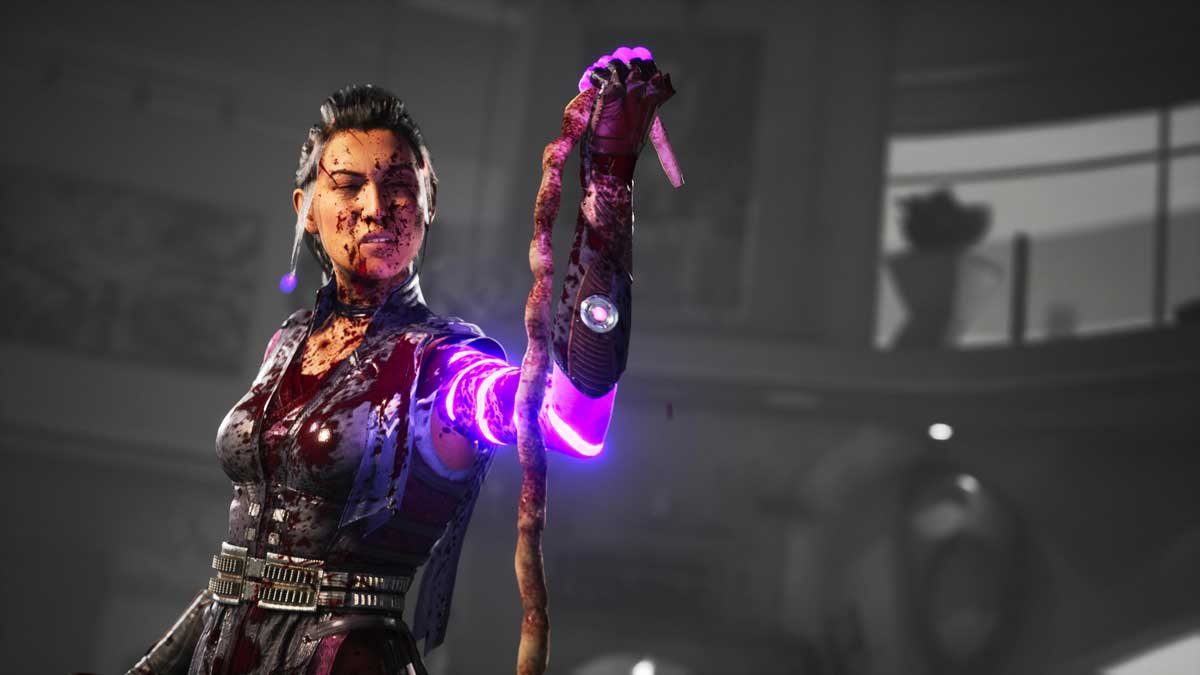
There’s an added focus to in-air attacks in this game, so you’ll find a new series of special attacks in every fighter’s move list which can only be pulled off while juggling enemies off the ground. Skilled players are likely to enjoy this new dimension to combat, but personally, I found that online players tend to just stick to tried-and-tested combos and Kameo moves instead of taking risks with flashy air tricks. That stuff requires finesse, and who needs finesse when you have Raiden?
Fatalities, brutalities, punches and kicks continue to feel satisfyingly crunchy and impactful as per Mortal Kombat tradition, but NetherRealm’s character animations continue to feel stiff and clunky in a way that leaves it far behind other new additions to the genre this year, like Street Fighter 6. Its maps are utterly breathtaking and rife with detail however, and its characters well-designed with a fun variety of combat styles to latch onto. I usually stick with Johnny Cage for recent entries, but I’m having a lot of fun with characters like Li Mei and Ashrah this time, both of whom have been absent from the franchise for almost 20 years now. They’re great picks for this roster, and fit well in the story Mortal Kombat 1 is trying to tell.
Verdict
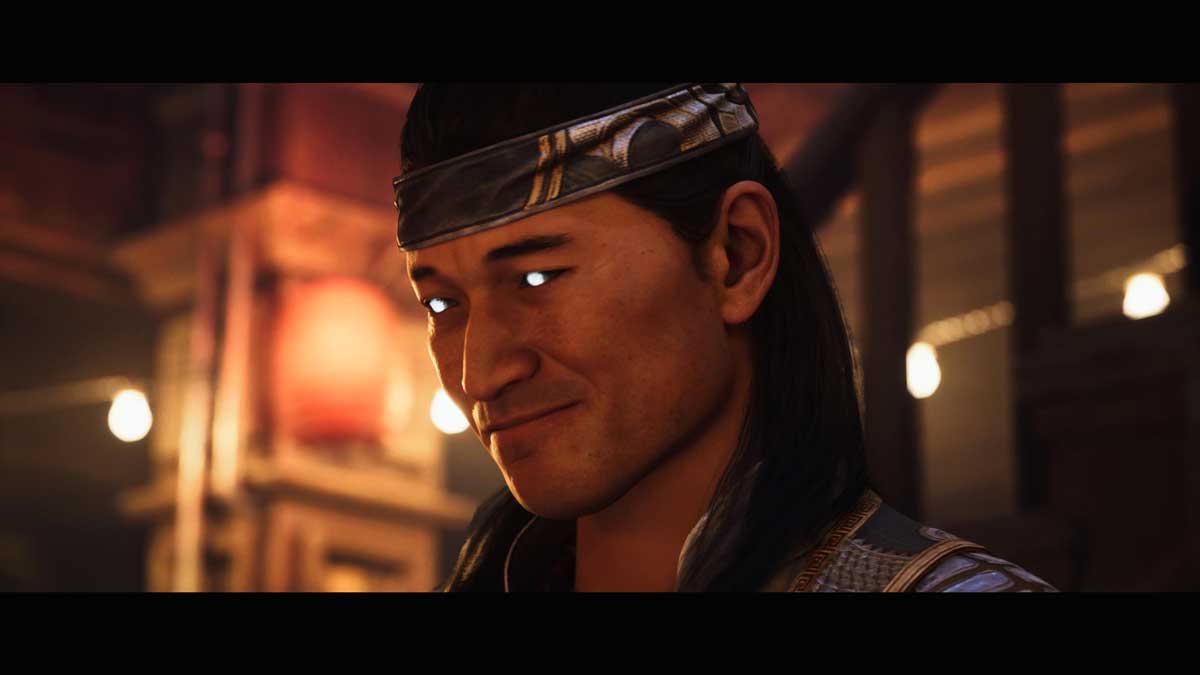
Mortal Kombat 1 is a soft reboot that sticks to what fans love best about this franchise: meaty combat, a diverse variety of gamemodes and an epic campaign filled with twists and turns. It doesn’t feel like the reinvention most franchise reboots aim to be, as the story continues to cling onto the past while opening up new branches of its future, which confusingly forces newcomers back into Mortal Kombat 11 if they want to fully understand the stakes of its campaign. Invasion also feels like a creative but ultimately half-baked successor to the Krypt, but it has time to grow with the promise of future seasonal content.
I may have a bone to pick with its many paid DLC characters and messy campaign plotting but the core combat, new fighters and breathtaking visuals have kept me coming back anyway. Reboots are a tricky thing, but NetherRealm Studios has proven that it will always have something new up its sleeve for this decades-old franchise.

